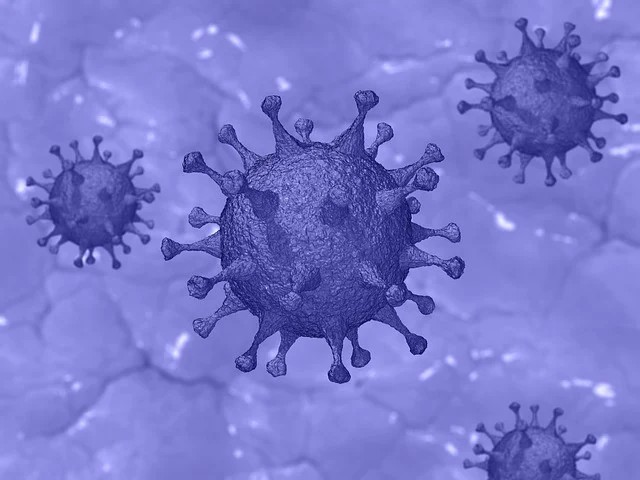Summary The randomized, placebo-controlled trial of the pill Paxlovid (Nirmatrelvir) showed 89% efficacy vs. Covid hospitalizations or deaths, and rapid reduction in viral load. The active pills had fewer serious adverse events or discontinuations than the placebo. |
Introduction
Severe acute respiratory syndrome coronavirus 2 (SARS-CoV-2) infection and associated coronavirus disease 2019 (Covid-19) continue to threaten global health. People with particular characteristics, such as advanced age, current smoking, or underlying clinical conditions, such as cardiovascular disease, diabetes, obesity, and cancer, are at high risk of severe Covid-19 and associated adverse outcomes.
In a meta-analysis, patients with prespecified coexisting conditions were approximately twice as likely to have progression to severe Covid-19 and five times more likely to die from Covid-19 than patients without those conditions. 4 Mortality among older adults may be higher than that of people with prespecified coexisting conditions.
There is a need for safe and effective oral Covid-19 treatments that can prevent the progression of infection to more severe disease, hospitalization and death; shorten clinical recovery time; and reduce the transmission rate. Such treatments would help reduce current strains on healthcare systems, including overwhelmed hospital facilities and a lack of intensive care unit beds.
For non-hospitalized patients with mild to moderate Covid-19, treatment options include monoclonal antibodies, which are currently available under emergency use authorization from the Food and Drug Administration for patients at high risk of progression to Covid-19. 19 serious.
Although monoclonal antibodies significantly reduce the risk of progression to severe Covid-19, 11-13 limitations to their use include the need for administration and monitoring in a healthcare setting and the potential for reduced efficacy against emerging SARS variants. CoV-2.
Nirmatrelvir (PF-07321332) is an orally administered antiviral agent that targets the SARS-CoV-2 type 3-chymotrypsin cysteine protease enzyme (M pro). M pro is an attractive antiviral target because it is essential in the viral replication cycle and has a low probability of off-target activity, due to the absence of recognized human analogues.
Nirmatrelvir exhibited potent inhibition of M pro activity and virus replication in a broad spectrum of coronaviruses in vitro; Oral administration was associated with SARS-CoV-2 lung titers that were significantly lower than titers associated with placebo in a mouse model.
Nirmatrelvir is primarily metabolized by CYP3A4. Coadministration of nirmatrelvir with a low dose (100 mg) of ritonavir, a CYP3A4 inhibitor, improves the pharmacokinetics of nirmatrelvir. A first-in-human study in healthy participants showed a clinically acceptable safety profile up to the highest dose and exposure tested (500 mg nirmatrelvir plus 100 mg ritonavir twice daily for 10 days).
Background
Nirmatrelvir is an orally administered severe acute respiratory syndrome coronavirus 2 major protease (M pro) inhibitor with potent pan-human-coronavirus activity in vitro.
Methods
We conducted a phase 2-3, randomized, double-blind, controlled trial in which symptomatic, unvaccinated, non-hospitalized adults at high risk of progression to severe coronavirus disease 2019 (Covid-19) were assigned in a ratio of 1: 1 to receive 300 mg of nirmatrelvir plus 100 mg of ritonavir (a pharmacokinetic enhancer) or placebo every 12 hours for 5 days.
Hospitalization or death from any cause related to Covid-19 up to day 28, viral load, and safety were evaluated.
Results
A total of 2246 patients were randomized; 1120 patients received nirmatrelvir plus ritonavir (nirmatrelvir group) and 1126 received placebo (placebo group).
In the planned interim analysis of patients treated within 3 days of symptom onset (modified intention-to-treat population, comprising 774 of the 1361 patients in the full analysis population), the incidence of hospitalization or death related to Covid-19 by day 28 was lower in the nirmatrelvir group than in the placebo group by 6.32 percentage points (95% confidence interval [CI], −9.04 to −3.59; P < 0.001 ; relative risk reduction, 89.1%); the incidence was 0.77% (3 of 389 patients) in the nirmatrelvir group, with 0 deaths, versus 7.01% (27 of 385 patients) in the placebo group, with 7 deaths.
Efficacy was maintained in the final analysis involving all 1379 patients in the modified intention-to-treat population, with a difference of −5.81 percentage points (95% CI, −7.78 to −3.84; P <0.001; relative risk reduction, 88.9%).
All 13 deaths occurred in the placebo group.
Viral load was lower with nirmaltrelvir plus ritonavir than with placebo on day 5 of treatment, with an adjusted mean difference of -0.868 log 10 copies per milliliter when treatment was initiated within 3 days of symptom onset.
The incidence of adverse events arising during the treatment period was similar in the two groups (any adverse event, 22.6% with nirmatrelvir plus ritonavir vs. 23.9% with placebo; serious adverse events, 1.6% vs. 6.6%; and adverse events that caused the drugs or placebo to be discontinued, 2.1% vs. 4.2%).
Dysgeusia (5.6% vs. 0.3%) and diarrhea (3.1% vs. 1.6%) occurred more frequently with nirmatrelvir plus ritonavir than with placebo .
Conclusions Treatment of symptomatic COVID-19 with nirmatrelvir plus ritonavir resulted in a risk of progression to severe COVID-19 that was 89% lower than the risk with placebo, with no obvious safety concerns. Our data show that treatment with nirmatrelvir plus ritonavir early in Covid-19 disease can slow progression to severe disease and rapidly reduce SARS-CoV-2 viral load. |
(Supported by Pfizer; ClinicalTrials.gov number, NCT04960202. opens in new tab.)
















